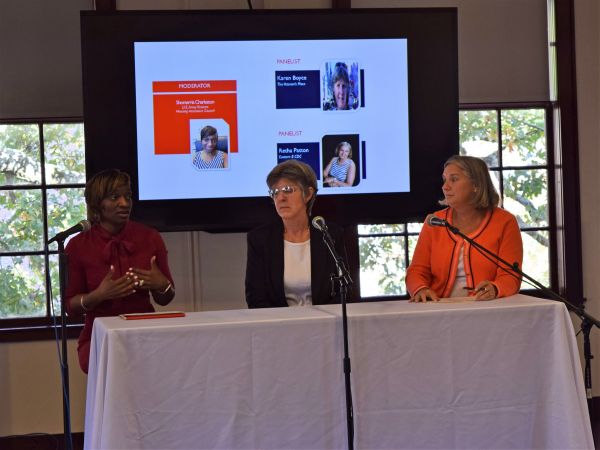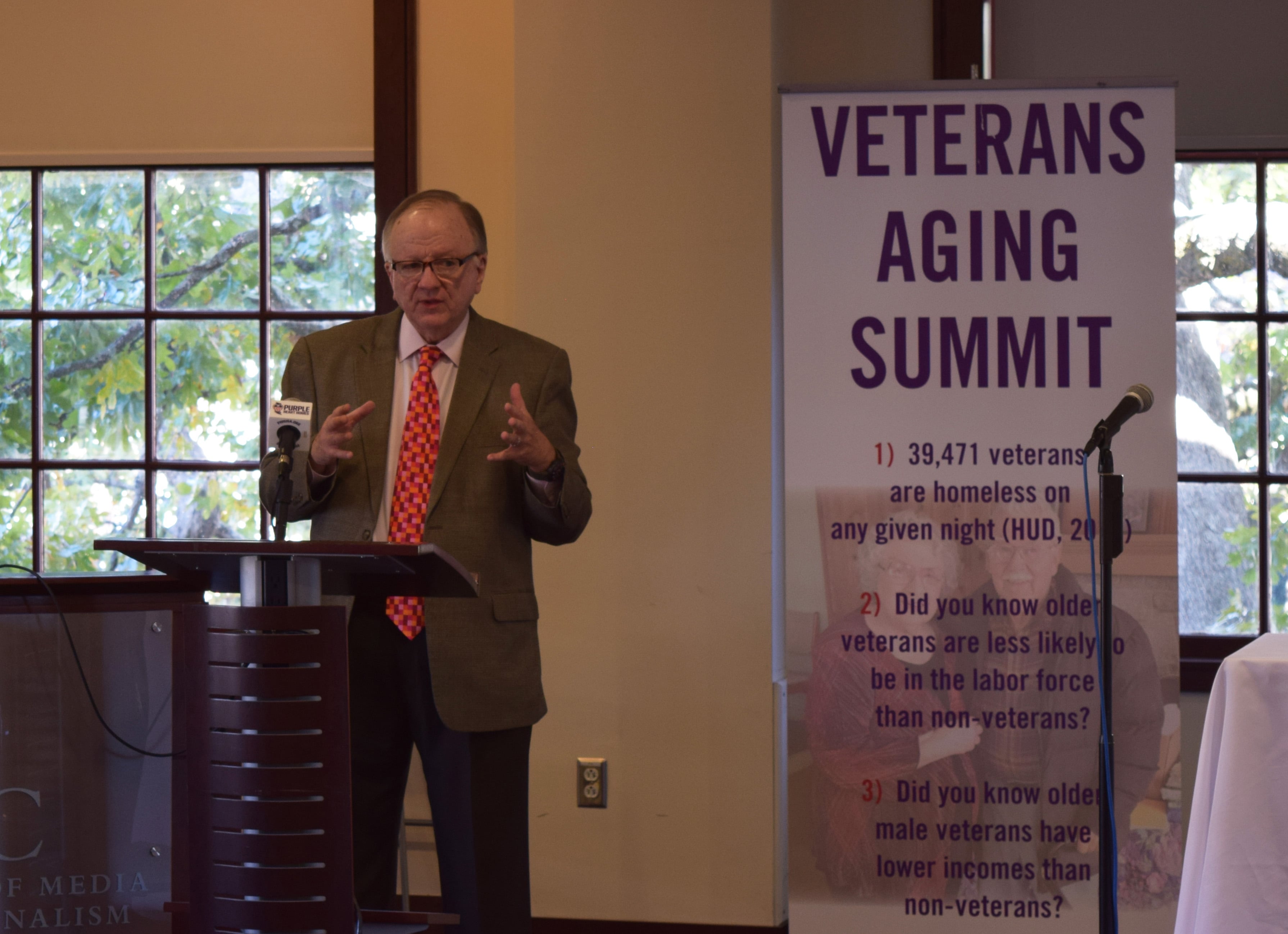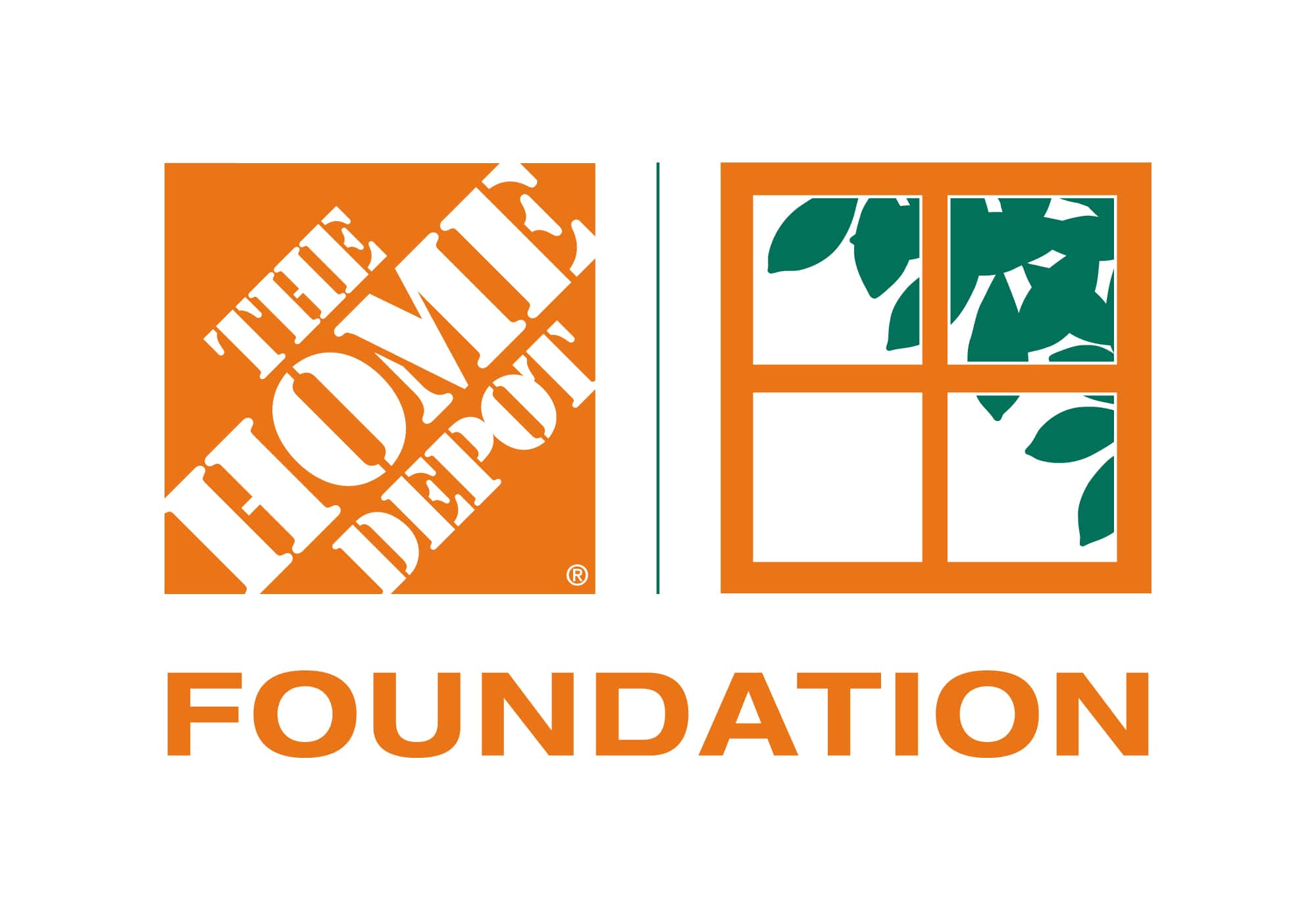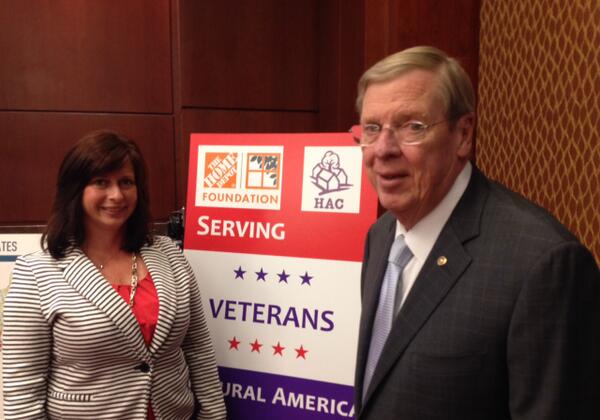HAC News Formats. pdf
October 14, 2015
Vol. 44, No. 21
• Deadline approaches for rural veteran housing projects • Celebration of Service supports rural veterans through November 11 • Hensarling request for suggestions includes USDA housing programs • FY15 USDA housing spending went mostly to guarantees, rental assistance • USDA implements integrated mortgage disclosure for direct Section 502 and 504 loans • Bill would authorize preservation program, allow some lenders to approve Section 502 guarantees • Section 8 OCAFs set • HUD issues guidance on determining homeless status of youth • Child poverty fell in 2014 but remains higher than in 2009 • Profiles show housing affordability for renters by state and locality
HAC News Formats. pdf
October 14, 2015
Vol. 44, No. 21
Deadline approaches for rural veteran housing projects. The Home Depot Foundation will make grants to nonprofits, tribally designated housing entities, and housing authorities serving veterans at or below 80% of area median income in rural areas. Projects may be new construction or rehab, temporary or permanent housing, in progress or beginning within 12 months. Concept papers are due October 30. Contact Shonterria Charleston, HAC, 404-892-4824.
Celebration of Service supports rural veterans through November 11. Each Monday until November 11, the Home Depot Foundation’s Team Depot Facebook page will highlight one of its nonprofit partners (HAC was featured September 21). For each like, comment, and share of these spotlight posts the foundation will donate $1 (up to $1 million total), which will be split between HAC and eight other nonprofits serving veterans. Dollars will also be donated for #ServiceSelfie posts on Twitter or Instagram.
Hensarling request for suggestions includes USDA housing programs. The September 30, 2015 HAC News reported that House Financial Services Committee Chair Jeb Hensarling (R-TX) seeks proposals for improvements to HUD and its programs. HAC has learned that the committee is also interested in ideas on USDA rural housing. The request includes specific topics for comment. Contact transformhousing@mail.house.gov.
FY15 USDA housing spending went mostly to guarantees, rental assistance. HAC’s analysis of USDA data shows that as of the end of September – the end of FY15 – USDA obligated 149,108 loans, loan guarantees, and grants totaling about $19.9 billion. This is $312 million less and 4,743 fewer (in number) obligations than at the same time last year. About 94% of the total loan and grant dollars obligated represent Section 502 guaranteed loans. USDA also obligated 249,468 units of tenant assistance representing over $1.1 billion through the Section 521 Rental Assistance and Section 542 Rural Housing Voucher programs. This represents about $19.96 million or 7,051 fewer units than this time last year. Watch the HAC News and ruralhome.org for a more detailed analysis of FY15 spending. Contact Michael Feinberg, HAC, 202-842-8600.
USDA implements integrated mortgage disclosure for direct Section 502 and 504 loans. A Section 502 or 504 loan is now subject to the Consumer Financial Protection Bureau’s new Truth in Lending Act and Real Estate Settlement Procedures Act Integrated Mortgage Disclosures (TRID) rule if a security interest will be taken on the property. In an email to stakeholders, USDA RD explains this regulation is expected to impact almost every aspect of mortgage transactions. RD has developed training materials and conducted webinars for its staff, and will issue an Unnumbered Letter. Sign up online to receive emails with information about RD’s single-family housing programs.
Bill would authorize preservation program, allow some lenders to approve Section 502 guarantees. The Housing Opportunity through Modernization Act, H.R. 3700, was recently introduced by Rep. Blaine Luetkemeyer (R-MO). It includes two provisions for USDA rural housing programs: it would authorize the Multifamily Preservation and Revitalization demonstration that has been funded for several years, and would allow USDA to delegate its Section 502 loan guarantee authority to preferred lenders. It would make a number of changes to HUD programs, some relating to income calculations and limits; it would also allow public housing agencies to create replacement reserves, extend the Family Unification Program, create inspection policies for PHAs’ units, and change utility reimbursements.
Section 8 OCAFs set. HUD’s new operating cost adjustment factors will apply to Section 8 project-based assistance contracts with anniversary dates on or after February 11, 2016. Contact Stan Houle, HUD, 202-402-2572.
HUD issues guidance on determining homeless status of youth. The document uses hypothetical scenarios to help providers understand how youth meet HUD’s definition of homelessness to receive Continuum of Care or Emergency Solutions Grants housing and services. An October 28 webinar will review the guidance and provide over-views of resources available to serve youth who meet and do not meet HUD’s definition of homeless.
Child poverty fell in 2014 but remains higher than in 2009. Research from the Carsey School of Public Policy at the University of New Hampshire analyzing American Community Survey data found that child poverty declined in rural places, suburbs, and cities, with the largest declines in rural America. Overall poverty rates are 38.4% for African-American children, 13.0% for non-Hispanic white children, and 32.1% for Hispanic children. Half (51.1%) of all rural African-American children live in poverty.
Profiles show housing affordability for renters by state and locality. The National Low Income Housing Coalition’s Housing Profiles, updated with Out of Reach 2015 data (see HAC News, 5/27/15), give one-page snapshots of affordable rental housing stock and affordability in each state and congressional district.
 HAC’s Shonterria Charleston, Karen Boyce (The Veteran’s Place) and Retha Patton (Eastern Eight CDC) discuss housing rural veterans.
HAC’s Shonterria Charleston, Karen Boyce (The Veteran’s Place) and Retha Patton (Eastern Eight CDC) discuss housing rural veterans. HAC’s Joe Belden speaking at the Aging Veterans Summit.
HAC’s Joe Belden speaking at the Aging Veterans Summit.


